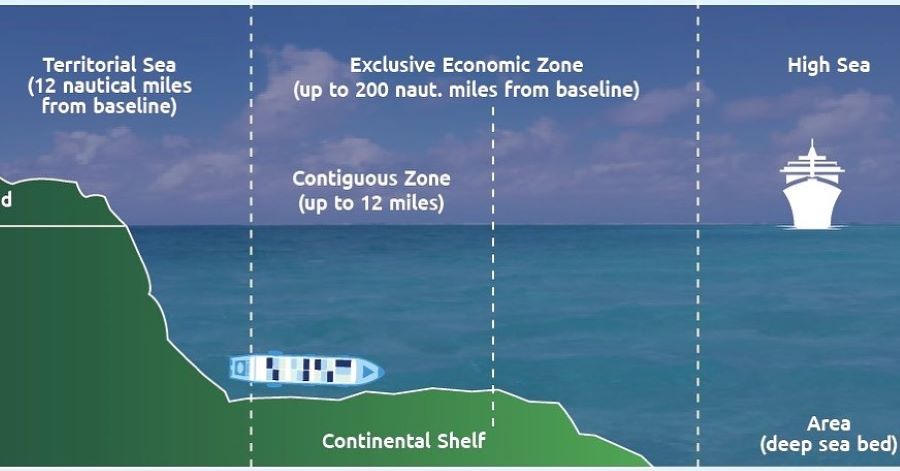


The need for prudence and foresight in managing natural resources
Nigeria’s recent achievement in extending its continental shelf by 16,300 square kilometers is a landmark victory that solidifies its position as a major maritime nation.
This feat, announced by President Bola Tinubu, is a testament to the country’s unwavering commitment and scientific prowess.
The journey to this triumph was long and arduous, spanning over a decade of meticulous research, diplomatic negotiations, and persistent lobbying efforts.
The significance of this achievement cannot be overstated. By expanding its maritime boundaries, Nigeria has not only secured a valuable asset for future generations but also demonstrated the importance of diplomacy and international cooperation in resolving disputes and advancing shared interests.
The responsible exploitation of these newfound resources could catalyse economic growth, create employment opportunities, and generate revenue streams that could be channeled into critical areas such as infrastructure development, education, and healthcare.
As Nigeria prepares to capitalise on this newfound bounty, it is imperative that the government exercise prudence and foresight in its management of these resources.
Lessons must be learned from the mismanagement and environmental degradation that have plagued the oil-rich Niger Delta region. A comprehensive and sustainable development plan, centered on transparency, environmental stewardship, and equitable distribution of wealth, must be formulated.
This plan should prioritise the diversification of the economy, investing in renewable energy sources, and promoting sustainable fishing and maritime industries.
A portion of the revenue generated from these resources should be allocated towards addressing the pressing challenges faced by coastal communities, such as sea-level rise, coastal erosion, and marine pollution. By investing in resilient infrastructure, climate adaptation measures, and environmental conservation efforts, Nigeria can ensure that the benefits of its maritime resources are enjoyed by present and future generations alike.
As the world grapples with the existential threat of climate change and the growing importance of the blue economy, Nigeria’s achievement serves as a beacon of hope and a reminder of the immense potential that lies beneath the waves.
With judicious stewardship, international cooperation, and a commitment to sustainable development, Nigeria can harness the power of its maritime domain to forge a prosperous and resilient future for its people.
This victory belongs not only to the dedicated team of experts who tirelessly pursued this endeavour but to every Nigerian. As the country embarks on this new chapter, it is incumbent upon all stakeholders to work in unison, ensuring that the fruits of this achievement are equitably shared and that the foundations are laid for a thriving, sustainable blue economy that will benefit generations to come.
Experts have pointed to the potential for hydrocarbons, gas, solid minerals, and a variety of sedentary species within Nigeria’s expanded maritime boundaries, enhancing the country’s significant energy and maritime resources.
However, Professor Larry Awosika, a member of the Hydrocarbon Pollution and Remediation Project (HPPC), has emphasised the need to safeguard sensitive data acquired during surveys to protect Nigeria’s interests and possibly monetise the information to recoup project costs.
This newspaper underscores the immense significance of this achievement. By extending its maritime boundaries, Nigeria has bolstered its status as a major player in the global blue economy and secured a valuable asset for future generations.
Responsible exploitation of these newfound resources could drive economic growth, create jobs, and generate revenue that could be invested in critical sectors such as infrastructure, education, and healthcare.
Moreover, this success underscores the importance of diplomacy and international cooperation in resolving disputes and advancing common interests.
Nigeria’s achievement was realised through adherence to international law and constructive engagement with the United Nations and its member states, contrasting sharply with the frequent resort to armed conflict over territorial disputes.
President Tinubu’s praise for the team for “gaining additional territory for the country without going to war” is well-deserved.
Nigeria has shown that complex territorial issues can be resolved peacefully, setting an example for other nations facing similar challenges.
As Nigeria looks to capitalise on this new opportunity, it is crucial that the government manage these resources with prudence and foresight.
Lessons must be learned from the mismanagement and environmental damage in the oil-rich Niger Delta, where benefits have been unevenly distributed and ecological consequences severe.
We advocate for a comprehensive and sustainable development plan centered on transparency, environmental stewardship, and equitable wealth distribution.
This plan should prioritise economic diversification, investment in renewable energy, and promotion of sustainable fishing and maritime industries to ensure long-term stability and job creation.
Additionally, a portion of the revenue from these resources should address pressing coastal challenges such as sea-level rise, erosion, and pollution.
As the world faces the existential threat of climate change and the growing importance of the blue economy, Nigeria’s achievement is a beacon of hope, highlighting the potential beneath the waves. With careful stewardship, international cooperation, and a commitment to sustainable development, Nigeria can leverage its maritime domain for a prosperous and resilient future.



